
On October 5, 2022, UT faculty and staff, community supporters, and LBJ students and alumni joined for a celebration of Hispanic women alumni entitled Diversity and Philanthropic Leadership in honor of Hispanic Heritage Month. The event was co-hosted by the LBJ School Office of Justice, Equity, Diversity, and Inclusion (JEDI), the Policy Alliance for Communities of Color (PACC), and the RGK Center. Erica Villareal Ekwurzel (MPAff ’07) led a discussion of Jo Carcedo’s (MPAff ’82) leadership roles in the philanthropic and nonprofit sector.
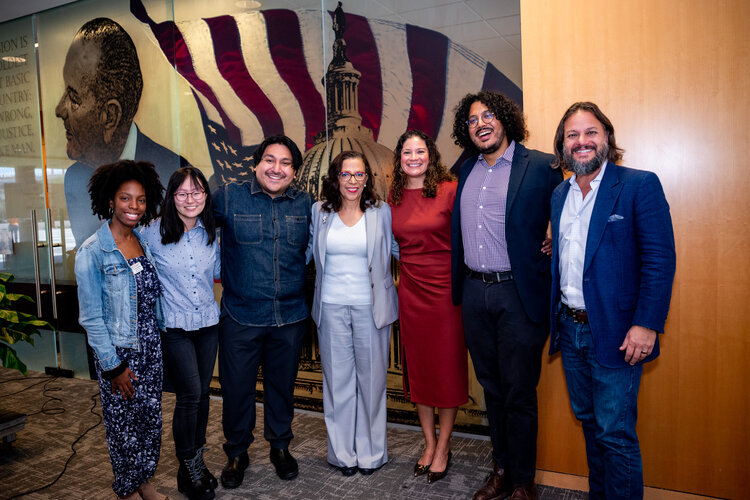
Jo Z. Carcedo, Vice President for Grants for the Episcopal Health Foundation, has developed EHF’s grantmaking system, oversees operational aspects of the organization’s grantmaking system, supervises program officer and grants management staff, directs the foundations $35 million grants budget, and ensures all organization-wide policies, processes, and systems are aligned with its core mission and strategic goals. Her grantmaking in this role supported the Houston community recovery after Hurricane Harvey. She is published in The Foundation Review, blogged for Health Affairs, and has been featured in the Annual Report of the Meadows Mental Health Policy Institute (2018). She is currently Board Chair for Philanthropy Southwest.
Erica Villareal Ekwurzel founded CivicAIM, a philanthropic advising firm that supports mission-driven individuals, families, and teams within organizations to strengthen their grantmaking, governance and impact. Erica has been involved in a variety of capacities, such as foundation program officer, philanthropic consultant, and professional facilitator, in founding, refining, and advancing social impact endeavors. Erica’s toolkit includes executive coaching, group facilitation and she enjoys engagements in the areas of intergenerational giving, strategic planning, and organizational effectiveness. She serves on the volunteer leadership boards of Todos Juntos Learning Center, National Network of Consultants to Grantmakers, Advisory Committee of Practitioners of Color Working with Giving Families organized by 21/64 and Austin Together.
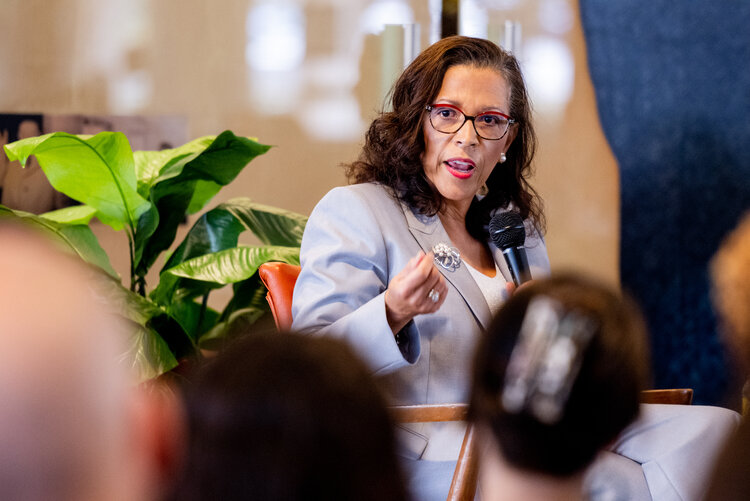
The event began with JEDI office director Estevan Delgado introducing the speakers and situating the conversation around the idea of leading from intersectional identities. Ekwurzel began her conversation with Carcedo with a question about leading with personal identities and experiences, prompting Carcedo to share an anecdote about her time serving with the Peace Corps in Ecuador. She told a story about a conversation with a man in Ecuador and his request for her to bring latrines to his community. The gentleman saw her as an American with the resources, power, and connections to get this project done, but Carcedo saw much more potential in empowering the community, with resources and instruction, to complete this project itself. Carcedo used this story to highlight her sentiment that “the people who experience the problems always have the answer; they just might not have the resources or power to accomplish their solution.” She said that communities often need power leveraged on their behalf, which happens when those with privilege assist others by building capacity and being willing to give some of their power away.
Next, Ekwurzel asked Carcedo about what the space felt like when she first became involved in philanthropy. Carcedo emphasized that she has worked hard to create a philanthropy that avoids having to go through social capital to get money. She discussed that in the context of philanthropic leadership, “diversity works…because it works,” because only 38 percent of nonprofits feel like their board members represent the communities they serve. Along the same lines, nonprofit organizations often shape their solution around what will be funded rather than having dialogue with their funders about reaching a community-based, collaborative solution, Carcedo said. Foundations can partner with organizations to reach these solutions by offering their research and knowledge, which fosters a learning environment for both grantseekers and grantmakers. This is important because, as Carcedo says, “solutions not made by the community are not solutions.”
The conversation ended with Carcedo’s advice for leaders and emerging leaders alike—decide to make a change, find support for what you want to do, and continue to make the choice to engage in both social change and philanthropy.
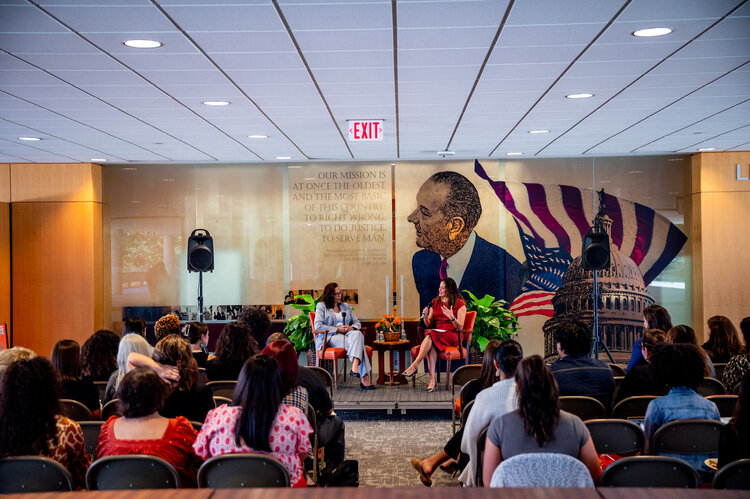
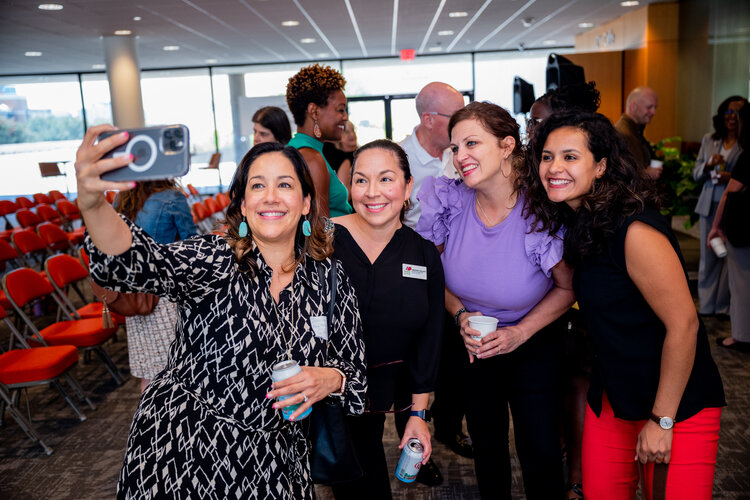
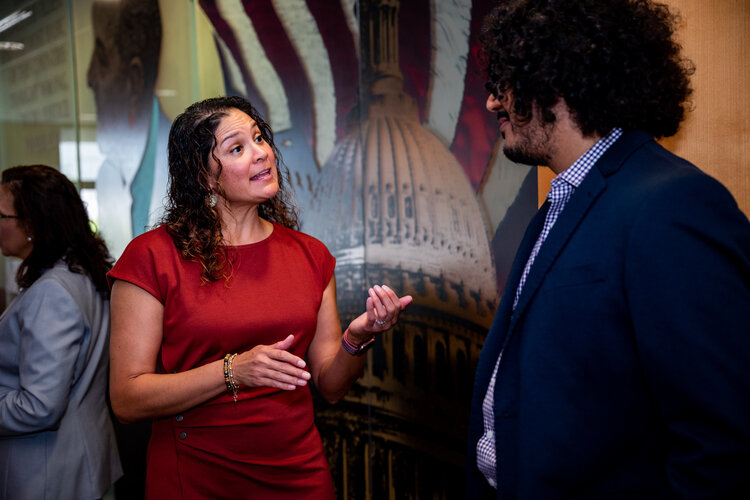
This event recap was written by MPAff canddiate and Kozmetsky Fellow Gabrielle Douthitt. Photos by Sasha Haagensen. For more photos from this event and other LBJ School events honoring Hispanic Heritage month, visit the LBJ School's Flickr.

